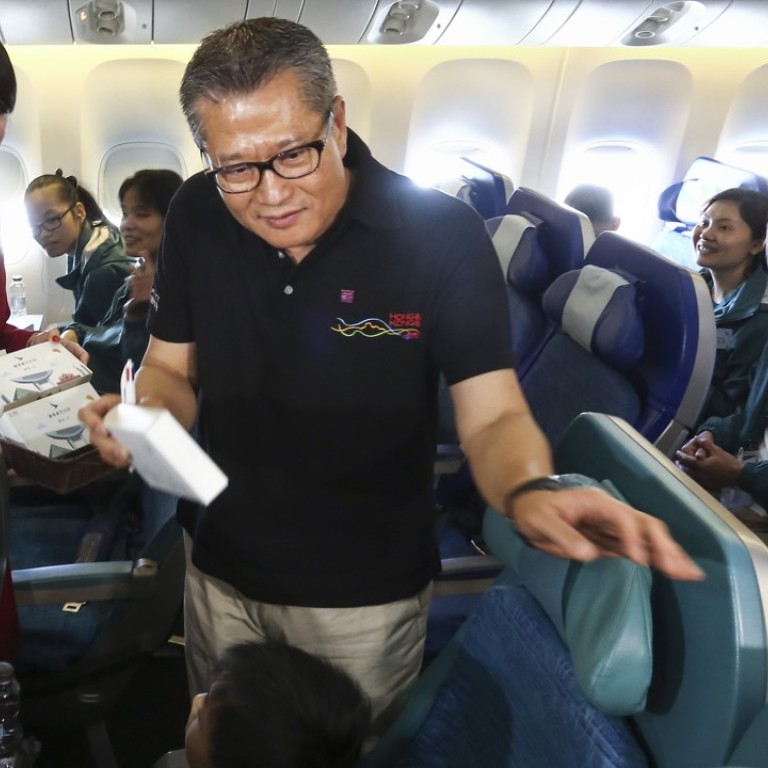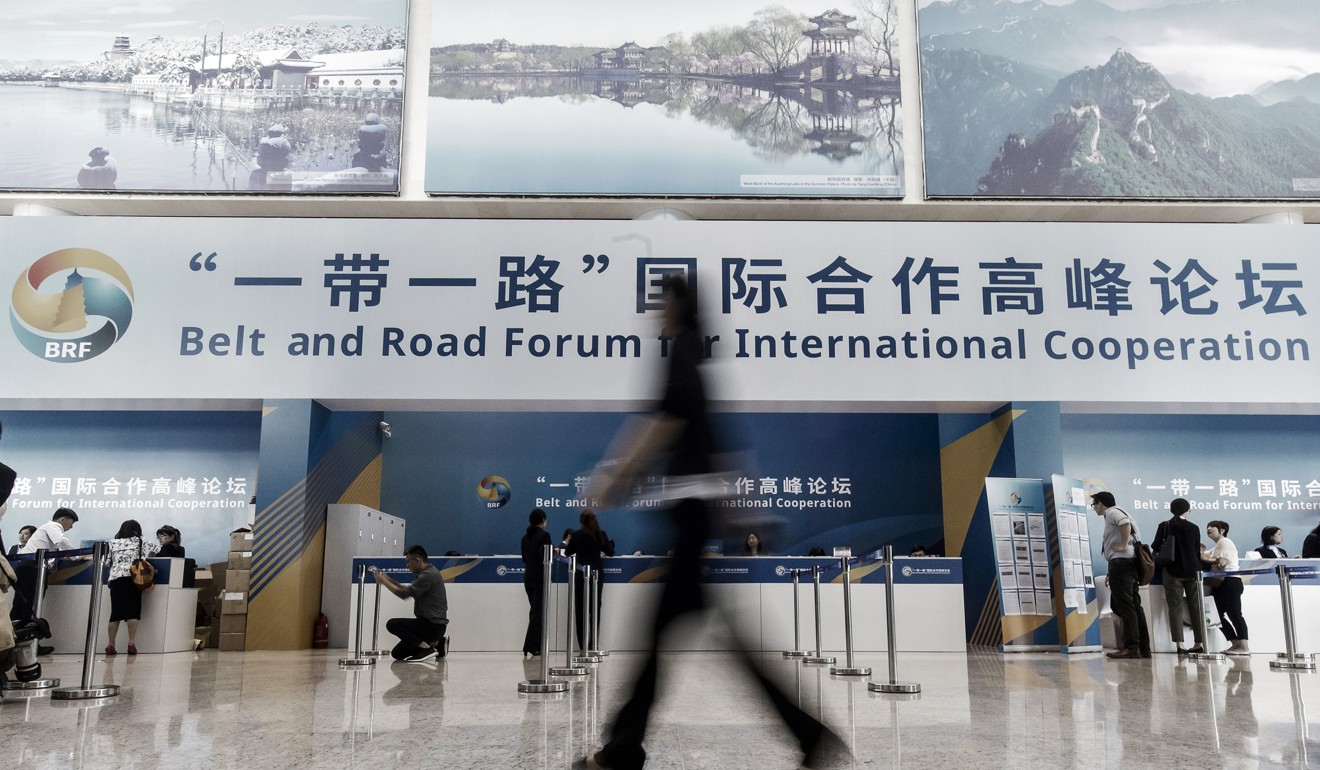
Belt and Road Initiative could bring Hong Kong practical benefits: financial secretary
In his weekly blog, Paul Chan Mo-po cites a wide range of projects in which Hongkongers are participating in Beijing’s ambitious development strategy
The “Belt and Road Initiative” is definitely not just empty talk or a political slogan but a blueprint that could bring practical benefits to Hong Kong, the city’s financial secretary said.
Apart from finance, Hong Kong also showcased talent in its accounting, legal, engineering, management and architecture sectors, the financial chief said.

He offered a long list of projects that Hongkongers had been involved in: airports in Cambodia, India and Sri Lanka; power plants in Thailand, Vietnam and Poland; a subway system in Saudi Arabia; and artificial islands in the United Arab Emirates.
He also promised the government would continue to strengthen its liaison and cooperation with countries along the plan’s strategic trade routes, while incorporating “Belt and Road” elements into future seminars and exhibitions, apart from the next Belt and Road conference in September.
In what could have been a coordinated effort, Secretary for Development Eric Ma Siu-cheung published a similar article on Sunday urging Hong Kong to speed up the pace of its business sector “going global” and not to relinquish opportunities.
He warned of “great risks” in the residential property market and called for “calm” from potential homebuyers, advising that the market had been greatly influenced by prevailing sentiment and emotion.
On Friday, the regulator tightened rules to target borrowers with multiple loans and whose income sources came from outside the city. The aim was to reduce banks’ credit risks.
Chan said the normalisation of interest rates by the US Federal Reserve meant it was “very likely” there would be an interest rate hike in June, meaning Hong Kong would follow suit in due course.

